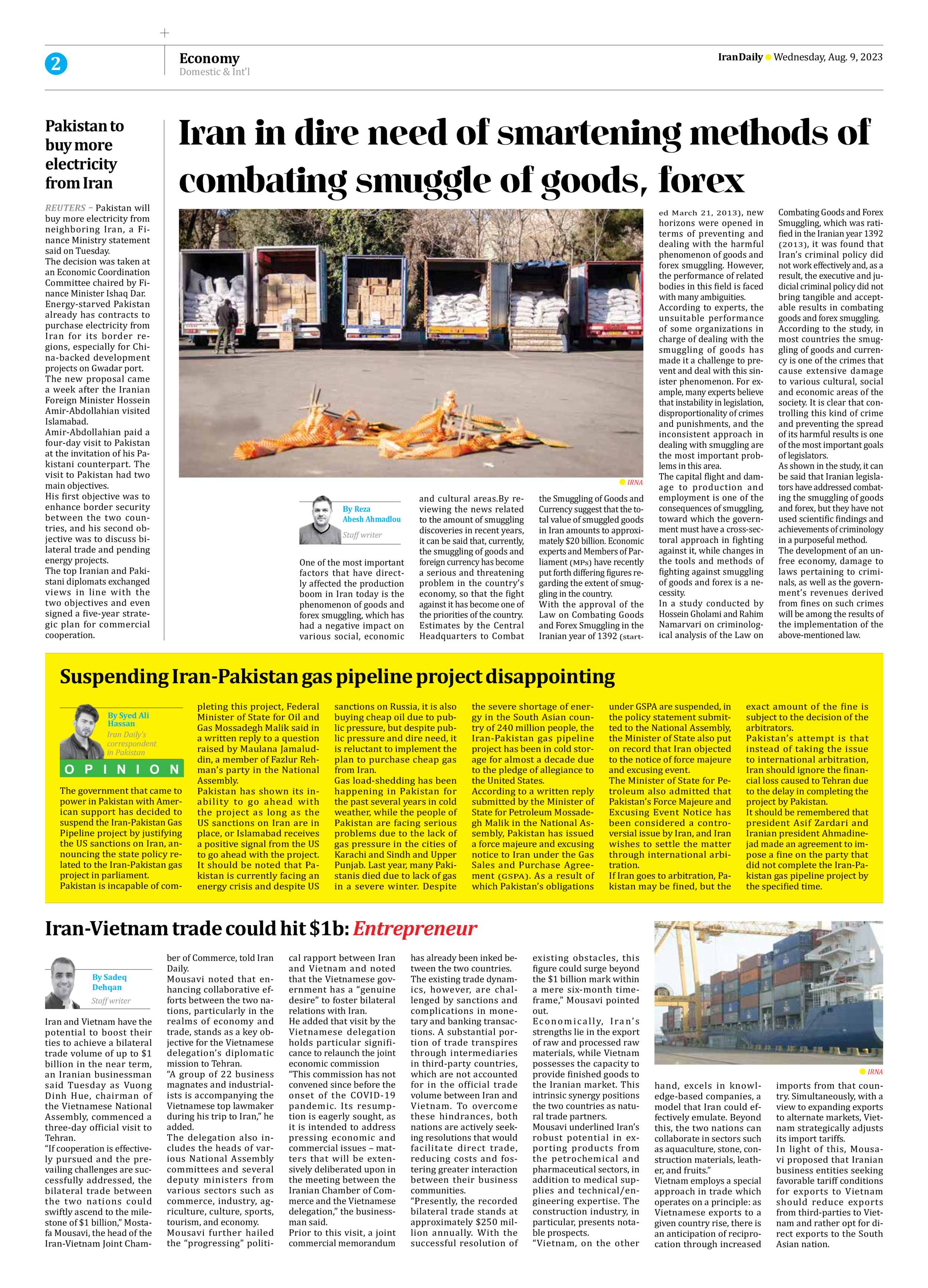
Suspending Iran-Pakistan gas pipeline project disappointing
By Syed Ali Hassan
Iran Daily’s correspondent in Pakistan
The government that came to power in Pakistan with American support has decided to suspend the Iran-Pakistan Gas Pipeline project by justifying the US sanctions on Iran, announcing the state policy related to the Iran-Pakistan gas project in parliament.
Pakistan is incapable of completing this project, Federal Minister of State for Oil and Gas Mossadegh Malik said in a written reply to a question raised by Maulana Jamaluddin, a member of Fazlur Rehman’s party in the National Assembly.
Pakistan has shown its inability to go ahead with the project as long as the US sanctions on Iran are in place, or Islamabad receives a positive signal from the US to go ahead with the project. It should be noted that Pakistan is currently facing an energy crisis and despite US sanctions on Russia, it is also buying cheap oil due to public pressure, but despite public pressure and dire need, it is reluctant to implement the plan to purchase cheap gas from Iran.
Gas load-shedding has been happening in Pakistan for the past several years in cold weather, while the people of Pakistan are facing serious problems due to the lack of gas pressure in the cities of Karachi and Sindh and Upper Punjab. Last year, many Pakistanis died due to lack of gas in a severe winter. Despite the severe shortage of energy in the South Asian country of 240 million people, the Iran-Pakistan gas pipeline project has been in cold storage for almost a decade due to the pledge of allegiance to the United States.
According to a written reply submitted by the Minister of State for Petroleum Mossadegh Malik in the National Assembly, Pakistan has issued a force majeure and excusing notice to Iran under the Gas Sales and Purchase Agreement (GSPA). As a result of which Pakistan’s obligations under GSPA are suspended, in the policy statement submitted to the National Assembly, the Minister of State also put on record that Iran objected to the notice of force majeure and excusing event.
The Minister of State for Petroleum also admitted that Pakistan’s Force Majeure and Excusing Event Notice has been considered a controversial issue by Iran, and Iran wishes to settle the matter through international arbitration.
If Iran goes to arbitration, Pakistan may be fined, but the exact amount of the fine is subject to the decision of the arbitrators.
Pakistan’s attempt is that instead of taking the issue to international arbitration, Iran should ignore the financial loss caused to Tehran due to the delay in completing the project by Pakistan.
It should be remembered that president Asif Zardari and Iranian president Ahmadinejad made an agreement to impose a fine on the party that did not complete the Iran-Pakistan gas pipeline project by the specified time.







